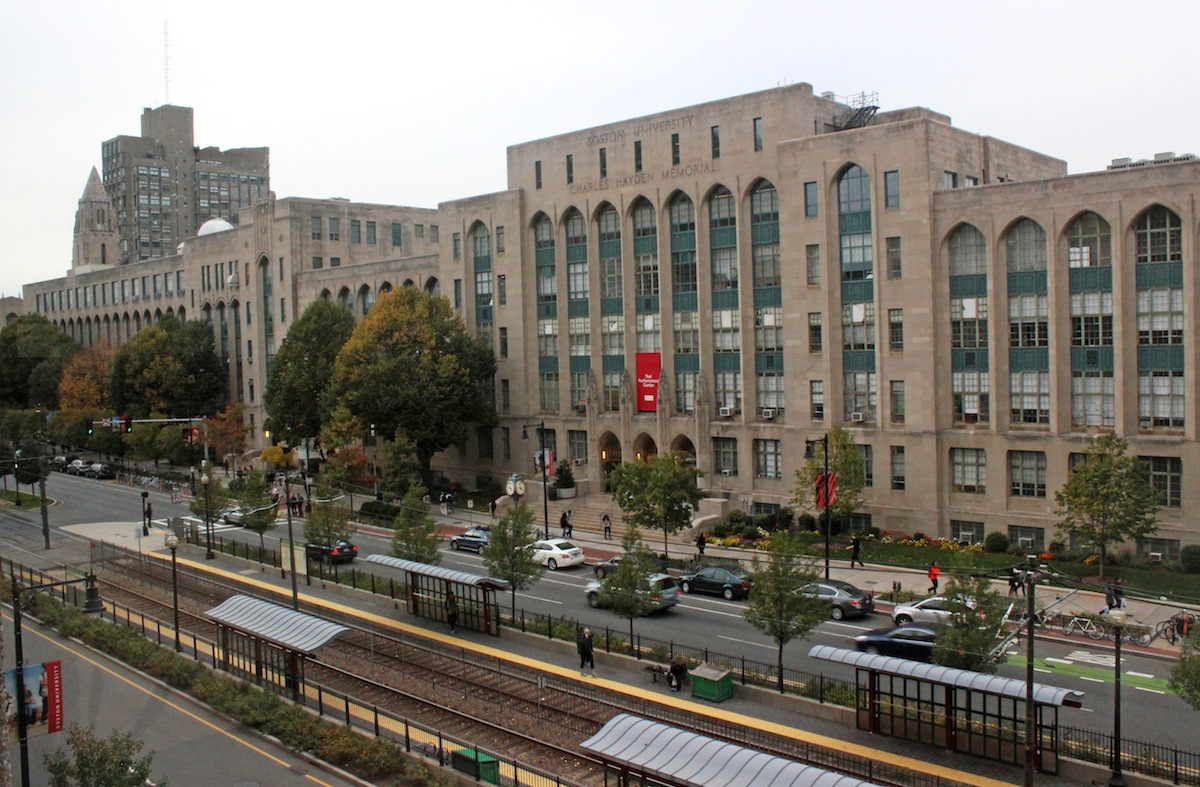Boston University Could Lose the Print Version of Their Student-Run Newspaper
The stresses of figuring out how to keep the print model relevant in an age when the dissemination of information comes largely from online platforms doesn’t just haunt the big-time publishers—it also affects college kids.
This week, Kyle Plantz, editor-in-chief of The Daily Free Press, broadly known as the FreeP, Boston University’s only independently run student newspaper, announced that they’re launching an aggressive online fundraising campaign on GoFundMe.com to try and pay off some of the $70,000 in debt they’ve accrued over the years. If they don’t, Turley Publications, the company that prints the weekly papers for the student organization, will likely “cease publishing” it.
“If a large portion of this debt is not resolved by December 31, 2014, Boston University will no longer have a print newspaper,” Plantz wrote in a plea to the public, hoping people will fork over funds to keep them afloat for a little while longer.
Plantz said in his letter to readers that the paper’s Board of Directors switched to a weekly print model this year, “with an emphasis on daily online content,” helping cut the FreeP’s costs by 80 percent. “But our debt from former cycles remains,” he said.
Much like larger news publications, the FreeP had a hard time adapting to the digital world, and ad revenue took a dive-bomb. “We are a business, and a vast majority of our funding comes from advertisements. Our costs…have included paying a printer for daily print production, rent, and the many small fees associated with running a business,” according to their GoFundMe page.
Plantz said the award-winning student paper, which got its start 44 years ago in response to the Kent State shootings, is looking to take the reins and proceed as a “self-sufficient company,” continuing to give students an opportunity to see their byline in print and preparing them for the world of journalism.
“The [Daily] Free Press is what makes a journalism degree from BU valuable,” one donor said. “It deserves to get out of debt and continue delivering quality independent journalism for the benefit of the university, and the students who volunteer their time.”
Coincidentally, the FreeP is trying to stay alive by relying on the powers of the Internet.
“Using #FreePFund [on Twitter] and a GoFundMe campaign, we are seeking to spread awareness of our predicament,” the letter to students said.
They’re asking anyone affiliated with Boston University—this includes students, family members of students, and alumni—to contribute to their cause, and help them inch closer to the $70,000 goal.
“Of course, there’s alway the debate between newspapers and the online era, but it comes down to what the BU community wants. I know there are many people who do pick up our paper each week and read what’s in it,” Plantz said. “This whole campaign is really to show support for student journalism and to help us become more financially sustainable. I hope people see that and decide to donate to keep us here.”


